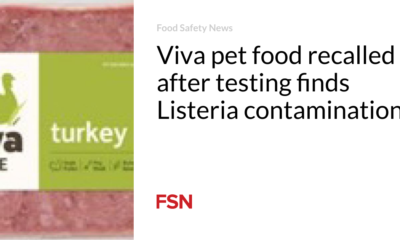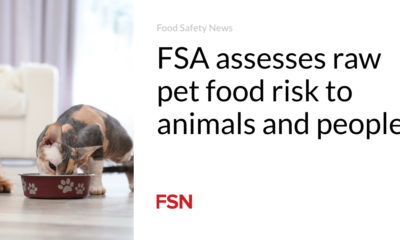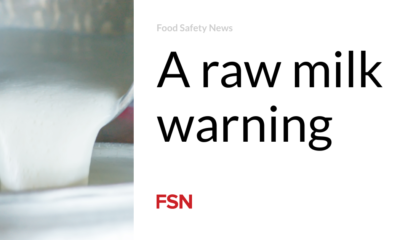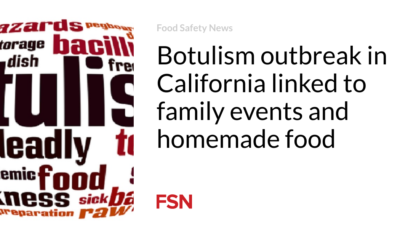Food
Plagued by indigestion? It could be your clothes and not food poisoning
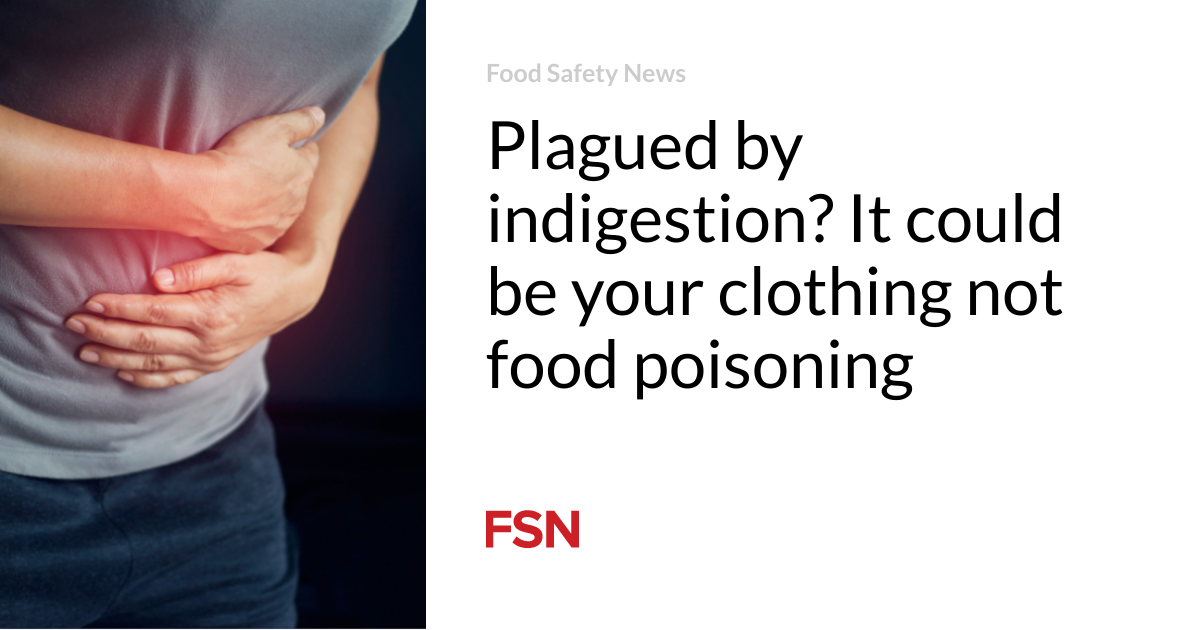
Many people complain of gas and bloating, and assume this is due to eating certain foods.
Food poisoning in the US causes 48 million people to become ill every year, according to the CDC. So it’s easy to blame the food you eat for your digestive problems, and people are right to worry about food safety. They may blame a restaurant for the way they handle the food. Or they may conclude that they cannot eat certain foods, causing gas and indigestion. They may wonder if the food contains certain pesticides or other contaminants that are causing their digestive problems. So they change their diet, look for different restaurants and change their supermarket, hoping to find a way for better digestion, but often fail to find the answer.
However, the problem does not have to be about food safety, or the food, or the way it is grown or prepared. The problem may be their own digestive process.
Otherwise, healthy foods can cause a gassy, crampy experience if your digestive system isn’t working properly. We know that when we have a stomach flu, our digestion is not good. It’s worth avoiding foods that can strain digestion, such as high-fiber, high-fat and spicy foods. People often have digestive problems no matter what they eat.
What could be causing this digestive problem, if not the food?
Please note that digestion requires the free passage of food from the mouth to the anus. In between are soft, tubular organs, including the stomach and the small and large intestines, which form the digestive tract. Within this channel, digested food gradually passes, which is absorbed as nourishment for the body.
However, a large part of this mass of digested material is immediately unusable for our body and serves as a food source for a large number of bacteria that populate this channel. Part of our diet comes from these bacteria and their byproducts.
You would think that harboring billions to trillions of bacteria in your intestines could become a gas problem, as it often does. Bacteria produce gas, which we must purify. We do this in four ways.
We burp when the gas is in the stomach. We fart when the gas is in the intestines. We absorb some of the gas into the bloodstream and exhale it, which explains why some people have bad breath. And most importantly, we eliminate the material that harbors and feeds these bacteria through regular bowel movements.
All of these methods of gas removal require easy flow of material within the digestive tract. For many people, eating takes 1 to 3 days from mouth to anus, depending on the type of food. If all goes well, the digestive system can manage gas production from food without discomfort.
However, even a healthy digestive system can develop problems if there is mechanical interference with the natural flow of food through the canal. Constipation can block the passage of food, resulting in gas that cannot escape easily. This leads to pressure, which can be so great that the colon bulges into a pocket called a diverticulum. This is how the disease diverticulitis develops. Gas retention leads to weakening and damage to the intestinal wall. This is also why you shouldn’t hold in farts.
Constipation can be caused by a number of issues, including dehydration and food type. But constipation is only one cause of digestive blockage. Another cause occurs outside the intestines. Actually, the problem lies outside the skin. It’s tight clothing.
Tight clothing has been shown to slow digestion. This has been shown with tight bras and tight girdles, and is thought to be related to the impact of tight clothing on the parasympathetic nervous system. The slower the digestion, the greater the chance of gas development.
Men don’t have to worry about tight bras and girdles. Instead, they have belts to hold up their pants.
Pants are strange garments, when you think about it. They must be stopped. You can do this from above, with suspenders that pull down uncomfortably on your shoulders. Or you can put elastic around the pants so that they narrow the waist and hold it well. Or you can wrap a belt around your waist and tighten it enough to keep your pants from falling.
Elastics and belts clearly narrow the waist, and this will disrupt intestinal circulation and the movement of food through the digestive tract, leading to gas formation. Girdles lie over parts of the small and large intestines, and the pressure of the girdle creates resistance to the free flow of digestive material.
What makes it worse is that the waist changes when sitting or standing. If you tighten a belt while sitting, it will be too loose when standing, which can lead to an embarrassing moment. If you tighten your belt while standing, it will be too tight when you sit. An elastic waistband may seem less problematic than a belt, as it automatically stretches to the required diameter. But just because the elastic can stretch doesn’t mean it isn’t too tight. In fact, it is usually too tight.
Anything that holds up pants, except suspenders, does so with constriction. This interferes with the nervous system that controls digestion, and interferes with the passage of food in the digestive tract.
Tight clothing slows down digestion.
This means that wearing bras, girdles and belts can disrupt digestion and cause problems including bloating and cramps. These essentially cause constipation from the outside. And this is regardless of what food you eat.
Changing foods to improve digestion will not solve a mechanical problem caused by tight clothing.
Another way to slow digestion, which has nothing directly to do with food choice, is by the way you eat the food. Do you eat in a hurry and on the go, or do you take the time to eat and then rest?
Fast food suits the fast pace of modern working life. As a culture, we have learned to eat on the go. And modern expectations of people being reachable via their mobile phones during meals have made meals even more of an extension of working hours. All this leads to constant stress, which is not good for digestion.
Stress causes the release of certain hormones that slow down the digestive process.
When stressed, blood flow to the intestines decreases, while blood flow to the muscles increases. This slows down bowel movement and allows gas to develop and build up.
People know that stress while eating can cause poor digestion. This is because the intestines work slower when you become stressed, but the bacteria still continue to produce gas. This is also why you don’t want to exercise soon after eating. This also directs blood from the intestines to the muscles.
In summary, the best way to improve your digestion, no matter what food you eat, is to wear loose-fitting clothing that does not restrict the body in any way, and make sure you eat calmly. These are lifestyle changes that can help you eat foods you like without indigestion.
It is not enough to prepare food for consumption; you need to prepare your body for food.
References:
1. Life is a gas: a new approach to diverticulitis, flatulence and gas pain
3. The effects of skin pressure through clothing on intestinal transit time and stool volume
(To sign up for a free subscription to Food Safety News,Click here)

